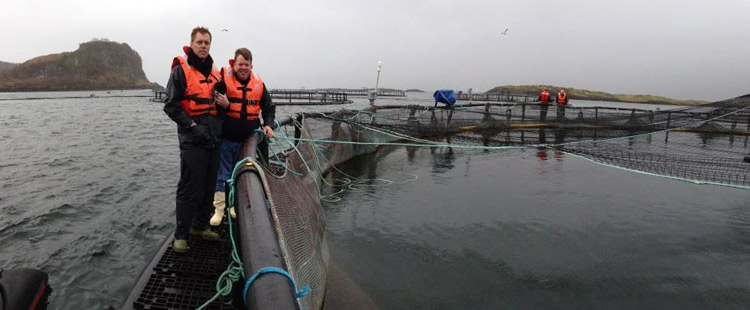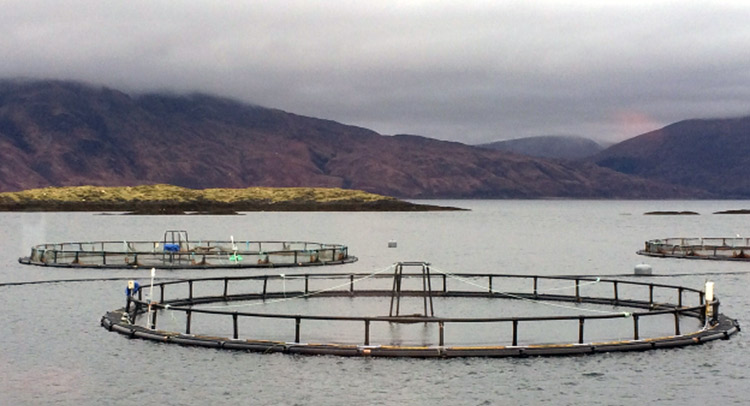
The Scottish Association for Marine Science (SAMS) and the Scottish Environmental Protection Agency (SEPA) recently hosted NCCOS researchers at a series of meetings to exchange ideas and demonstrate the latest coastal planning and environmental assessment tools for marine aquaculture. The Scots have developed modeling tools to simulate coastal aquaculture environmental interactions, focusing on localized effects of aquaculture on water quality and benthic communities. NCCOS is using these tools to help managers in the U.S. develop siting and monitoring guidelines for marine aquaculture development.
NCCOS researchers presented recent findings on environmental interactions with marine aquaculture, directions forthe Coastal Aquaculture and Environmental Sustainability (CAPES) program, and efforts to evaluate existing models for marine fish and shellfish aquaculture. The CAPES program is working around the U.S. to assist coastal managers with siting and management of aquaculture in the coastal zone.

Marine aquaculture is one of many industries that use ecosystem services provided by the coastal ocean and estuaries. As the aquaculture industry continues to grow, larger ecosystem-based models will be needed to forecast nearby, distant, and cumulative effects (both positive and negative) on coastal ecosystems.
Future collaborations with SAMS and SEPA will focus on further model development and validation including species presently being farmed in the U.S.
For more information, contact James.Morris@noaa.gov.
